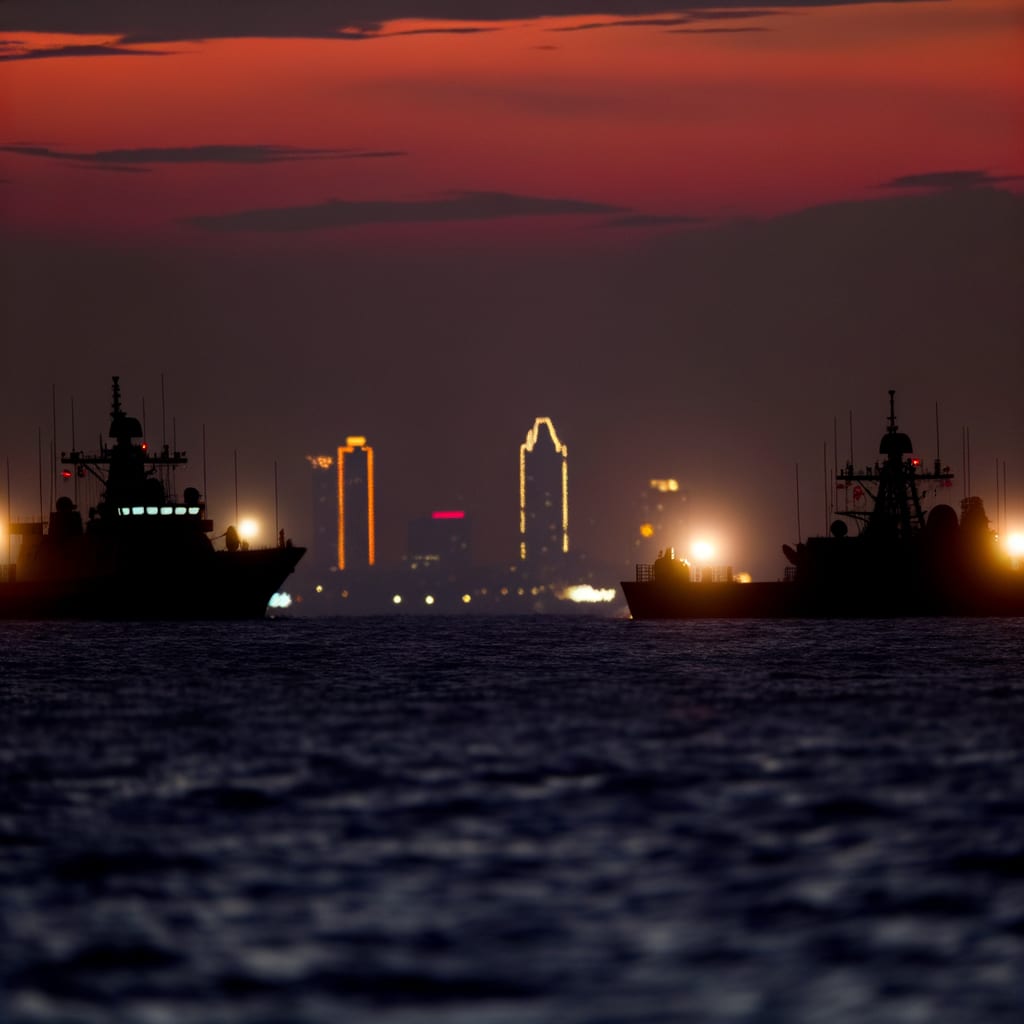Tensions Rise as Asia-Pacific Nations Navigate Complex Geopolitical Landscape
In the wake of escalating tensions in the Asia-Pacific region, countries are forging strategic partnerships, seeking to balance security concerns with economic opportunities. Amidst China's increasing influence, states are being urged not to allow the Pacific to become a militarized zone, while others are looking to strengthen defense cooperation and diplomacy with countries such as Germany, Japan, and the United States.
Rising Influence and Regional Concerns
China's expanding influence and assertiveness have raised alarms in the region. The country has been conducting live-fire drills in the South China Sea and fighter jet operations in the East China Sea. These moves have not gone unnoticed, as Pacific nations warily observe Beijing's activities. The Pacific must be protected from becoming a military zone amid China’s growing push for influence in the region,
warned New Zealand's Deputy PM Winston Peters, signifying the growing anxiety in the region.
Further, China's soft power is also reshaping Asian culture, with Chinese cultural exports gaining popularity. However, this influence has sparked debates over whether it is fostering cross-border understanding or being used as a tool for propaganda.
Strategic Partnerships and Defense Diplomacy
In response to these developments, countries in Southeast Asia are looking beyond traditional security partners. Germany is stepping up its defense diplomacy in the region, signing deals, deploying warships, and joining regional forums. Japan is also strengthening its ties with countries like Paraguay and Italy, even planning to jointly develop a next-generation fighter jet with the latter.
Meanwhile, the U.S. remains a key player, despite uncertainties over its defense policy. Taiwan's defense chief, Wellington Koo, emphasized that the Trump administration has a shared interest in regional security. However, reports of potential U.S. troop withdrawal from South Korea have sparked concerns, even though the Pentagon has denied such plans.
Economic Opportunities and Challenges
While geopolitical concerns loom large, countries are also seeking to capitalize on economic prospects. Chinese President Xi Jinping has expressed readiness to share China's poverty reduction experience with the Shanghai Cooperation Organisation (SCO) states, emphasizing joint efforts to build a world free of poverty.
Additionally, French President Emmanuel Macron is hoping to strengthen relations with Vietnam and Indonesia, benefiting from these Southeast Asian powers' dynamic development. However, the Trump administration is also seeking to limit China's access to state-of-the-art semiconductors, showing the complex intertwining of economic and strategic interests.
Conclusion
The current geopolitical landscape in the Asia-Pacific region is marked by a delicate balance of power. Nations are navigating a complex web of alliances, economic opportunities, and security concerns amidst rising tensions. As they do so, the region remains on edge, hoping for peace while preparing for potential conflict.

